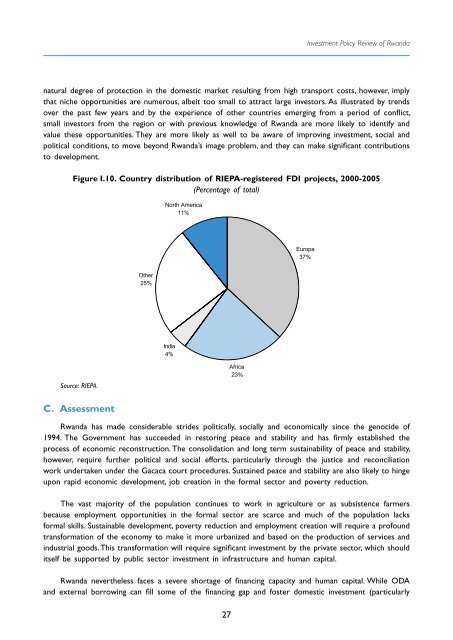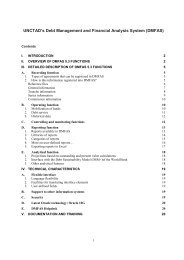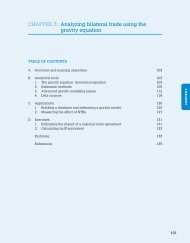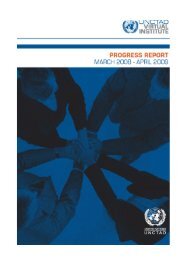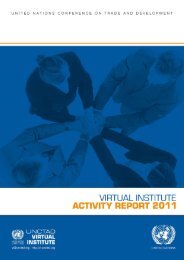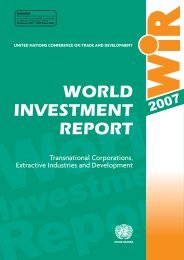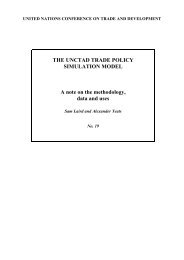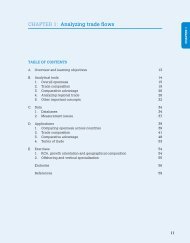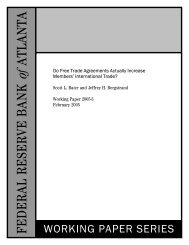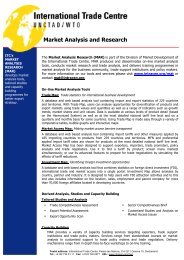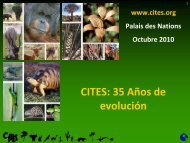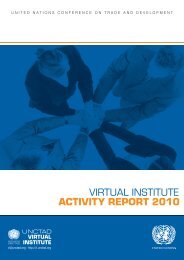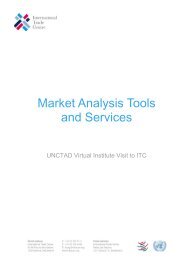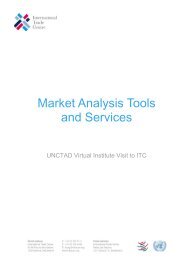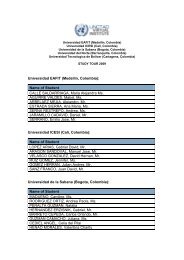Investment Policy Review - Rwanda - UNCTAD Virtual Institute
Investment Policy Review - Rwanda - UNCTAD Virtual Institute
Investment Policy Review - Rwanda - UNCTAD Virtual Institute
Create successful ePaper yourself
Turn your PDF publications into a flip-book with our unique Google optimized e-Paper software.
<strong>Investment</strong> <strong>Policy</strong> <strong>Review</strong> of <strong>Rwanda</strong><br />
natural degree of protection in the domestic market resulting from high transport costs, however, imply<br />
that niche opportunities are numerous, albeit too small to attract large investors. As illustrated by trends<br />
over the past few years and by the experience of other countries emerging from a period of conflict,<br />
small investors from the region or with previous knowledge of <strong>Rwanda</strong> are more likely to identify and<br />
value these opportunities. They are more likely as well to be aware of improving investment, social and<br />
political conditions, to move beyond <strong>Rwanda</strong>’s image problem, and they can make significant contributions<br />
to development.<br />
Figure I.10. Country distribution of RIEPA-registered FDI projects, 2000-2005<br />
(Percentage of total)<br />
North America<br />
11%<br />
Europa<br />
37%<br />
Other<br />
25%<br />
India<br />
4%<br />
Source: RIEPA.<br />
Africa<br />
23%<br />
C. Assessment<br />
<strong>Rwanda</strong> has made considerable strides politically, socially and economically since the genocide of<br />
1994. The Government has succeeded in restoring peace and stability and has firmly established the<br />
process of economic reconstruction. The consolidation and long term sustainability of peace and stability,<br />
however, require further political and social efforts, particularly through the justice and reconciliation<br />
work undertaken under the Gacaca court procedures. Sustained peace and stability are also likely to hinge<br />
upon rapid economic development, job creation in the formal sector and poverty reduction.<br />
The vast majority of the population continues to work in agriculture or as subsistence farmers<br />
because employment opportunities in the formal sector are scarce and much of the population lacks<br />
formal skills. Sustainable development, poverty reduction and employment creation will require a profound<br />
transformation of the economy to make it more urbanized and based on the production of services and<br />
industrial goods. This transformation will require significant investment by the private sector, which should<br />
itself be supported by public sector investment in infrastructure and human capital.<br />
<strong>Rwanda</strong> nevertheless faces a severe shortage of financing capacity and human capital. While ODA<br />
and external borrowing can fill some of the financing gap and foster domestic investment (particularly<br />
27


